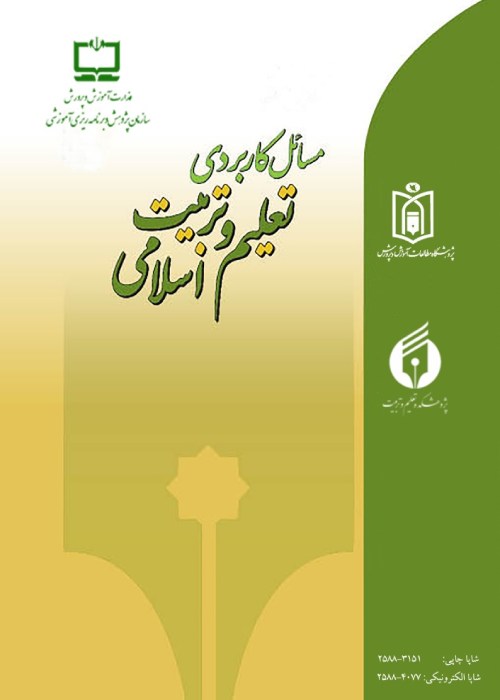Explaining Environmental Education Based on the Philosophical Foundations of Education in the Islamic Republic of Iran
Author(s):
Article Type:
Research/Original Article (دارای رتبه معتبر)
Abstract:
The purpose of this study was to explain environmental education based on the philosophical principles of education in the Islamic Republic of Iran. The method of this qualitative research was Frankena's inference type. Based on Frankena's deduction pattern and through combining goals and foundations, certain principles were derived. The statistical population of the study comprised the philosophy of education in the Islamic Republic of Iran and all sources related to environmental education which were purposefully selected and thoroughly examined. The data analysis methods included categorization, coding and interpretation which were continuously and simultaneously carried out with data collection. The findings of the study indicated that the goals of environmental education based on the philosophy of education in the Islamic Republic of Iran include: understanding the presence of God, the world of nature and man, awareness of the purposefulness of nature, commendation of the nature holiness, understanding the order and balance of nature, understanding the metaphysical and physical aspects of man based on his relationship with the environment, understanding and fostering an environmentally responsible behavior. The foundations of environmental education are: nature as a manifestation of God, the purposefulness of nature, the sanctity of nature, the orderly nature, man (a combination of body and soul as well as intellect and senses) perceiving the nature, the freedom of man, the sense of belonging to a place in man, the inherent value of nature independent of the human mind, natures being founded on the principle of a just system, environmental aesthetics in humans. And finally, the principles of environmental education are: the attitude of "az-oui" (We belong to Allah) toward nature, belief in natures ultimate, respect for nature as a sacred creature, the preservation of the harmony of nature, the harmony of the body and soul in relation to nature, the bond of senses and mind in relation to nature, observing laws in the environment by humans, the discovery of environmental identity, observance of the right to a healthy environment, environmental justice, the achievement of a comprehensive environmental attitude, beauty of nature as the motive for environmental protection.
Keywords:
Language:
Persian
Published:
Journal of Applied Issues in Islamic Education, Volume:2 Issue: 5, 2018
Pages:
7 to 46
magiran.com/p1862156
دانلود و مطالعه متن این مقاله با یکی از روشهای زیر امکان پذیر است:
اشتراک شخصی
با عضویت و پرداخت آنلاین حق اشتراک یکساله به مبلغ 1,390,000ريال میتوانید 70 عنوان مطلب دانلود کنید!
اشتراک سازمانی
به کتابخانه دانشگاه یا محل کار خود پیشنهاد کنید تا اشتراک سازمانی این پایگاه را برای دسترسی نامحدود همه کاربران به متن مطالب تهیه نمایند!
توجه!
- حق عضویت دریافتی صرف حمایت از نشریات عضو و نگهداری، تکمیل و توسعه مگیران میشود.
- پرداخت حق اشتراک و دانلود مقالات اجازه بازنشر آن در سایر رسانههای چاپی و دیجیتال را به کاربر نمیدهد.
In order to view content subscription is required
Personal subscription
Subscribe magiran.com for 70 € euros via PayPal and download 70 articles during a year.
Organization subscription
Please contact us to subscribe your university or library for unlimited access!


